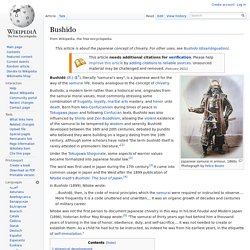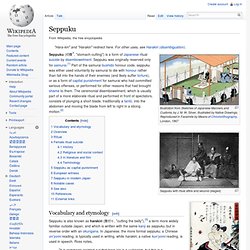

Noel Perrin. Noel Perrin (September 18, 1927 – November 21, 2004) was an American essayist and a professor at Dartmouth College.[1][2][3][4] Early years[edit] Perrin was born on September 18, 1927, in New York City and grew up in Pelham Manor, New York His parents both worked as advertising copywriters at the J.

Walter Thompson Agency.[1] His mother, Blanche Chenery Perrin, was a career writer and the author of several novels.[2] Perrin's mother was his inspiration to become a writer. Perrin was educated at the Woodberry Forest School in Orange, Virginia, and later at Williams College, where he majored in English Literature and graduated in 1949. He received a master's degree from Duke University in 1950, then served in the United States Army. Teaching and writing career[edit] During the 1950s, Perrin taught English Literature at the Woman's College of the University of North Carolina (1956–1959). His second book, Dr. Interest in environmental matters[edit] Minor Heresies - Posts - Noel Perrin, the Tokugawa Shogunate, and Land Mines. Last Sunday I went to a memorial gathering.

It was near the second anniversary of the death of the writer Noel Perrin, and Terry Osborne, his friend and now the owner of his house, invited people to come reminisce and read from his works. Noel Perrin is best known for his thoughtful and funny essays on rural life, collected in four books, starting with First Person Rural and ending with Last Person Rural. Terry Osborne has edited a collection of Ned’s pieces, called Best Person Rural: Essays of a Sometime Farmer. These books chronicle 40 years of a life split between teaching at Dartmouth, writing, and farming.
The editor of The American Scholar, Robert Wilson, said that Noel had “the best plain prose style in America.” Ned wrote a book unlike all his others, ostensibly on Japanese military history. The new technology allowed a crowd of reasonably well trained peasants to defeat a group of highly skilled samurai. So, if not gun control, what am I writing about?
Bushido. Japanese samurai in armour, 1860s.

Photograph by Felice Beato Bushidō (武士道?) , literally "samurai's way", is a Japanese word for the way of the samurai life, loosely analogous to the concept of chivalry. Bushido, a modern term rather than a historical one, originates from the samurai moral values, most commonly stressing some combination of frugality, loyalty, martial arts mastery, and honor unto death. Born from Neo-Confucianism during times of peace in Tokugawa Japan and following Confucian texts, Bushido was also influenced by Shinto and Zen Buddhism, allowing the violent existence of the samurai to be tempered by wisdom and serenity. Under the Tokugawa Shogunate, some aspects of warrior values became formalized into Japanese feudal law.[2] The word was first used in Japan during the 17th century.[3] It came into common usage in Japan and the West after the 1899 publication of Nitobe Inazō's Bushido: The Soul of Japan.[4] In Bushido (1899), Nitobe wrote: Historical development[edit]
Seppuku. Illustration from Sketches of Japanese Manners and Customs, by J.

M. W. Silver, Illustrated by Native Drawings, Reproduced in Facsimile by Means of Chromolithography, London, 1867 Seppuku with ritual attire and second (staged) Samurai about to perform seppuku Seppuku (切腹? Vocabulary and etymology[edit] Seppuku is also known as harakiri (腹切り, "cutting the belly"),[3] a term more widely familiar outside Japan, and which is written with the same kanji as seppuku, but in reverse order with an okurigana. "It is commonly pointed out that hara-kiri is a vulgarism, but this is a misunderstanding. The practice of committing seppuku at the death of one's master, known as oibara (追腹 or 追い腹, the kun'yomi or Japanese reading) or tsuifuku (追腹, the on'yomi or Chinese reading), follows a similar ritual.
The word jigai (自害?) Overview[edit] A tantō prepared for seppuku. The Project Gutenberg eBook of Bushido, by Inazo NitobÉ, A.M., Ph.D..